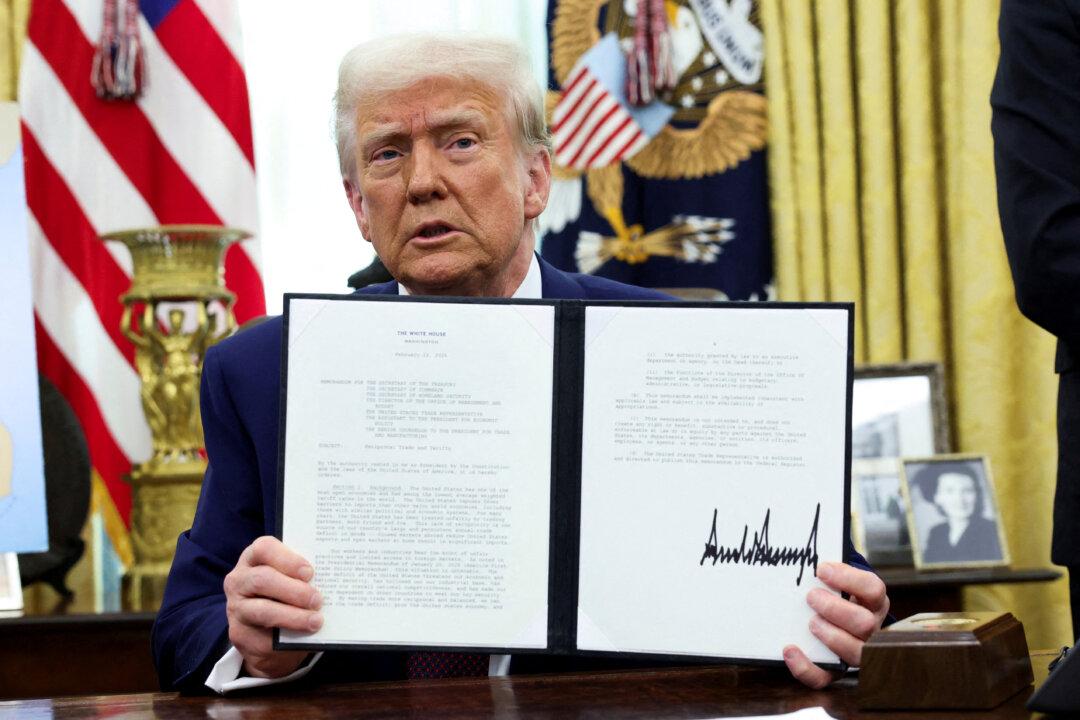President Donald Trump signed an executive order on Feb. 18 to enable the White House’s Office of Management and Budget to have oversight of independent federal agencies.
Examples of independent agencies include the Federal Reserve, the Federal Communications Commission, the Federal Energy Regulatory Commission, the National Transportation Safety Board, the National Labor Relations Board, and the Federal Trade Commission.





